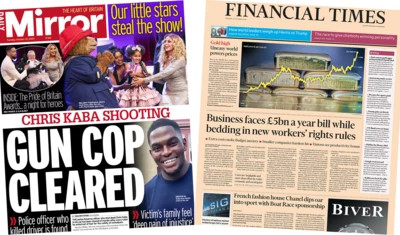We've updated our Privacy and Cookies Policy
We've made some important changes to our Privacy and Cookies Policy and we want you to know what this means for you and your data.
Vinegar Valentines: When love letters were hate mail
Image source, None
- Author, Bethan Bell
- Role, В鶹№ЩНшКЧТіИлїЪ News
Valentine's Day is an opportunity to bombard a paramour - or hoped-for paramour - with syrupy sentiment. But it has not always been quite so sweet.
The 1800s saw a trend emerge that was distinctly more acidic. Vinegar Valentines were still a chance to make someone blush, but with humiliation and hurt.
There seems to have been a card for every insult, from snide comments about baldness, jeers about personality, and jibes about status. Some taunted recipients about alcoholism and other addictions, and some even wished them dead.
Like internet trolls of today, they were anonymous, releasing a sender from social constraints and leaving them free to indulge their spite.
Image source, None
Most were also printed on thin cheap paper, which compromised their durability, and as Merv Williams at the Library of Birmingham, which holds a , said - they are rare to come by.
"Comic Valentines are increasingly difficult for collectors to find today. Due to their very nature, the recipient was unlikely to regard such an item as a treasured possession and so it was destroyed."
Many were bought by men to send to their male friends, lampooning their chosen trade or mocking their characteristics, cruelly pointing out the reason they had failed to secure a love match.
You cry your Fish so loud and shrill
Turbot, Mackerel, Plaice and Brill
And on the women passing by
You leer and cast a fishy eye,
Now who on earth would ever wish
To have a man who smells of fish.
Image source, None
People with a grudge could add injury to insult.
Not only would their target be humiliated or offended, but before 1840 people had to pay to receive mail rather than send it - particularly galling if the card lampooned someone for their penny-pinching.
A mid-19th Century offering, with a caricature of a man hiding his moneybags on the front, reads:
You slave and save and starve yourself,
And I can't see the reason why,
You've hoarded all those piles of money,
You can't take it with you when you die.
Image source, None
According to Malcolm Warrington of the Ephemera Society, the cards ridiculed the fashion of the day or poked fun at cooks, parlour-maids, policeman, wheelwrights and other workers in everyday occupations.
"However, lurking beneath this cheery good humour were a class of sneaky, sinister Valentines that were disturbing, printed crudely on thin poor quality paper, bearing tasteless and offensive imagery accompanied by an equally disagreeable few lines of verse.
"The festering hostility and pent-up frustrations of the anonymous sender are manifested in these works of hatred and cruelty."
Image source, None
Women were ridiculed for the clothes they wore - such as large bonnets.
A face far from ugly I'll own
You possess; may no blight come over it.
But if you would study the brain
Don't wear a coal-scuttle to cover it.
While some were cruelly mocked about physical appearance:
Your figure brings laughter from men,
And what a mouth you've got for an oyster,
So do hide yourself in a cloister,
For I don't want to see you again.
Image source, None
But by the late 1800s, Britain's love affair with comic Valentines was all but over, said Mr Williams.
"Following the late Victorians' demand for a return of public decency and decorum, Valentine's Day and its traditions generally fell out of favour."
It was only to regain popularity some years later with the outbreak of World War One, with parted lovers sending cards and messages across the sea - this time with the more romantic sentiments that continue to prevail today.
Top Stories
More to explore
Most read
Content is not available








